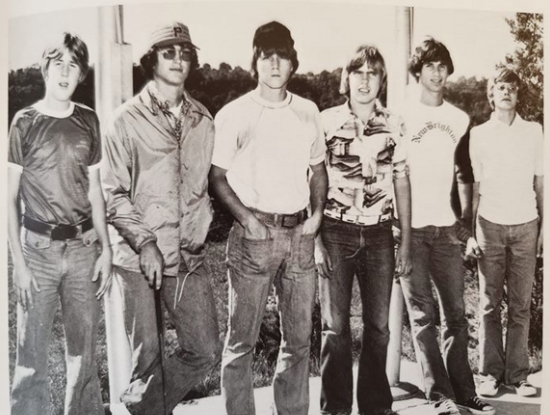Up Your Game: Drive Better Results Through Revenue Process Improvement

Slight brag: I was a three-year letterman on my high school golf team. That’s me with the wild 1970s shirt. Let me make it clear, I didn’t earn those letters because I was a good player. I got them because we only had exactly the number of players needed to field a golf team. So no matter my score, the fact that I showed up meant I made the team and won a letter.
Heading into my senior year, I had a strong desire to improve my game, mostly because I thought it would make me popular. I read all the golf magazines in the summer of 1976 and believed all the ads that promised that I could shave eight to 10 strokes off my golf game by switching to the new, latest golf technology. In 1976, the silver bullet technologies for golf were clubs with graphite shafts and multipiece golf balls with new aerodynamic dimples. So, I saved my money from my summer job to get new clubs just in time for our first practice. And no, unfortunately, new clubs did not improve my golf game or make me popular!
The reason? While new clubs gave me 20 extra yards off the tee, it often drove me 20 yards deeper into the woods. I had a bad grip. Horrible swing. Couldn’t putt. No mental confidence. My coach’s advice? If I was going to improve, I needed to pay attention to the fundamentals of my game.
So, what does this nostalgic story have to do with B2B marketing and sales and the revenue process?
For six years now, I’ve been preaching about a new silver bullet that can drive dramatic improvement in performance of the revenue process — switching from marketing-qualified leads (MQLs) to buying groups and opportunities. It’s been a game changer for improving revenue process efficiency for many of our clients. But just like me with my new clubs, I’ve seen many clients struggle with performance after introducing a new silver bullet approach.
The reality is that making the transition to something new (graphite shafts or buying groups) can make a difference, but your success is also heavily dependent on your fundamentals, both on the golf course and in your revenue process. For example, if you don’t have strong service-level agreements (SLAs) between marketing, your revenue development reps (RDRs)/business development reps (BDRs), and sales, it doesn’t matter if you’re passing a lead or a buying group. Not following up in a timely and appropriate manner is catastrophic to your process performance in both cases.
The good news is that Forrester has a robust and proven approach with supporting tools to identify and improve the foundational operational performance of your revenue process. It helps you identify areas in your revenue process that are broken and understand what’s causing the performance issue at each stage (i.e., broken SLAs, poor programs, lack of training, weak messaging, capacity, and others) and provides guidance on how to resolve the issues. Combining good or improved fundamentals with a transformation to buying groups is the path to success.
